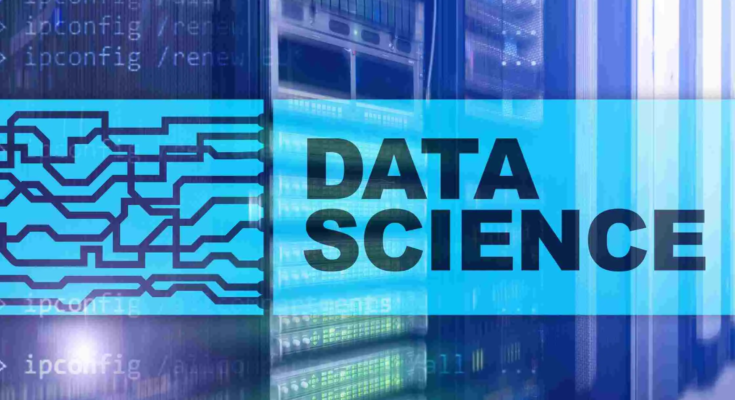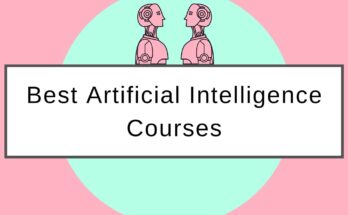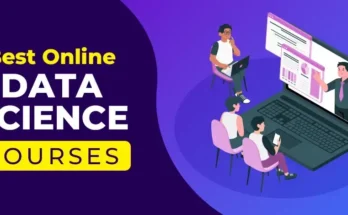Data science has emerged as one of the most sought-after fields in the tech industry, offering a promising career path for those interested in analytics, machine learning, and harnessing the power of data. However, before embarking on this journey, it’s essential to understand the prerequisites and eligibility criteria for data science courses. In this comprehensive guide, we will explore the various aspects of data science course eligibility, answer frequently asked questions, and help you make an informed decision about pursuing a data science education.
Understanding Data Science
Before diving into eligibility requirements, let’s begin with a brief overview of what data science encompasses.
What is Data Science?
Data science is a multidisciplinary field that combines techniques from statistics, computer science, and domain-specific knowledge to extract insights and knowledge from data. Data scientists analyze large datasets to discover patterns, make predictions, and inform decision-making processes. They use a wide range of tools and technologies, including machine learning, data mining, and data visualization, to solve complex problems and gain a deeper understanding of data.
Data Science Course Types
There are various types of data science courses available, each catering to different skill levels and career goals. To determine eligibility, it’s crucial to identify the course that aligns with your objectives.
Undergraduate Data Science Courses
Undergraduate data science programs are typically four-year bachelor’s degree programs offered by universities and colleges. These programs provide a comprehensive foundation in data science and often include coursework in mathematics, computer science, statistics, and data analytics. To be eligible for an undergraduate data science course, you generally need a high school diploma or its equivalent.
Master’s in Data Science
Master’s programs in data science are designed for individuals who already possess a bachelor’s degree and want to deepen their knowledge and skills in data analysis and machine learning. Eligibility criteria typically include a bachelor’s degree in a related field, such as computer science, mathematics, or engineering. Some programs may also require standardized test scores, such as the GRE, and relevant work experience.
Online Data Science Courses
Online data science courses come in various formats, from short-term certificates to full-fledged master’s programs. Eligibility for online courses can vary widely. Many online courses have flexible admission criteria and are suitable for a broad range of individuals, including those with non-technical backgrounds. Some may require prerequisites, while others are open to beginners.
Ph.D. in Data Science
Ph.D. programs in data science are research-focused and typically require a master’s degree in a related field for admission. These programs are designed for individuals interested in pursuing advanced research in data science and contributing to the field through academic or industry research projects.
Also Read: Data Science Subjects in Degree
Common Data Science Course Eligibility Criteria
The eligibility criteria for data science courses vary depending on the type of program and the institution offering it. Here are some common requirements you might encounter:
1. Educational Background
- For undergraduate programs, a high school diploma or equivalent is typically required.
- For master’s programs, a bachelor’s degree in a related field like computer science, mathematics, engineering, or a closely related discipline is often necessary.
- Online courses may have more flexible educational requirements, with some programs being accessible to individuals without a technical background.
- Ph.D. programs usually require a master’s degree in a relevant field.
2. Prerequisite Courses
Many data science programs expect applicants to have completed specific prerequisite courses in mathematics (e.g., calculus, linear algebra, statistics) and computer science. These courses ensure that students have the foundational knowledge required for advanced data analysis.
3. Standardized Test Scores
Some master’s programs may require standardized test scores, such as the GRE (Graduate Record Examination). However, this requirement varies between institutions and programs.
4. Work Experience
Certain master’s programs prefer applicants with relevant work experience in the field. While this is not a strict requirement for most programs, it can strengthen your application.
5. Letters of Recommendation
Graduate programs, especially at the master’s and Ph.D. levels, often require letters of recommendation from professors or professionals who can attest to your academic or work-related qualifications.
6. Statement of Purpose
Applicants are usually required to submit a statement of purpose outlining their motivations, career goals, and how the program aligns with their objectives.
7. English Language Proficiency
If you are a non-native English speaker, you may be required to demonstrate your English language proficiency by taking tests like TOEFL or IELTS.
8. Transcripts
You will need to provide transcripts from your previous educational institutions to demonstrate your academic history and qualifications.
9. Application Fee
Most programs have an application fee that must be paid when submitting your application.
Frequently Asked Questions (FAQ)
Let’s address some common questions and concerns regarding data science course eligibility.
Q1: Can I pursue a data science course without a technical background?
Yes, you can. Many data science programs, especially online courses and bootcamps, are designed for individuals without a technical background. These programs often provide foundational training in mathematics and programming to prepare students for more advanced data science concepts.
Q2: Do I need to be an expert in programming to enroll in a data science program?
While some programming knowledge is beneficial, it’s not always a strict requirement. Basic programming skills in languages like Python and R can be learned as part of the curriculum or as prerequisites.
Q3: What if I don’t have a bachelor’s degree in a related field?
If you lack a bachelor’s degree in a related field, you might still be eligible for data science programs. Many institutions consider work experience and alternative qualifications when assessing applicants.
Q4: Are there age restrictions for data science courses?
No, there are no age restrictions for most data science courses. People of all ages can pursue education in data science.
Q5: Can I pursue data science education part-time while working a full-time job?
Yes, many data science programs offer part-time or online options to accommodate working professionals. These flexible programs allow you to balance your job and education.
Q6: Are scholarships available for data science courses?
Yes, many institutions and organizations offer scholarships and financial aid for data science programs. Be sure to explore scholarship opportunities and apply for financial assistance if needed.
Q7: How long does it take to complete a data science program?
The duration of data science programs varies. Undergraduate programs typically take four years, while master’s programs can range from one to two years. Online courses and bootcamps can be completed in a matter of months, and Ph.D. programs typically take several years to complete.
Q8: Can I switch to data science from a different career field?
Yes, you can transition into data science from a different career field. Many data science programs accept students from diverse backgrounds. However, you may need to fulfill additional prerequisites to bridge the knowledge gap.
Q9: Do I need a powerful computer for data science courses?
While a high-performance computer is beneficial, it’s not always a strict requirement. Many data science programs provide access to cloud-based computing resources and data science tools, allowing students to work on less powerful machines.
Q10: Are there any online resources to prepare for data science courses?
Yes, there are numerous online resources, tutorials, and free courses available to prepare for data science programs. Websites like Coursera, edX, and Kaggle offer introductory courses and tutorials in data science and related topics.
Conclusion
In conclusion, data science is an exciting and rapidly evolving field that offers a wide range of educational opportunities for individuals with varying backgrounds and career goals. Eligibility criteria for data science courses can differ significantly, so it’s essential to research and select the program that aligns with your qualifications and aspirations.
Whether you are a recent high school graduate, a working professional looking to switch careers, or someone with a non-technical background, there is likely a data science program suitable for you. Keep in mind that the field of data science values diversity and welcomes individuals from diverse backgrounds, as different perspectives and experiences can enrich the data analysis process.
If you are considering a data science program, carefully review the specific eligibility requirements of the institutions and programs you are interested in. Don’t hesitate to reach out to admissions offices for clarification or guidance. Additionally, explore scholarship opportunities and financial aid to make your education more affordable.
With the right preparation and determination, you can embark on a data science journey that opens doors to a world of exciting career possibilities in data analysis, machine learning, and artificial intelligence.




